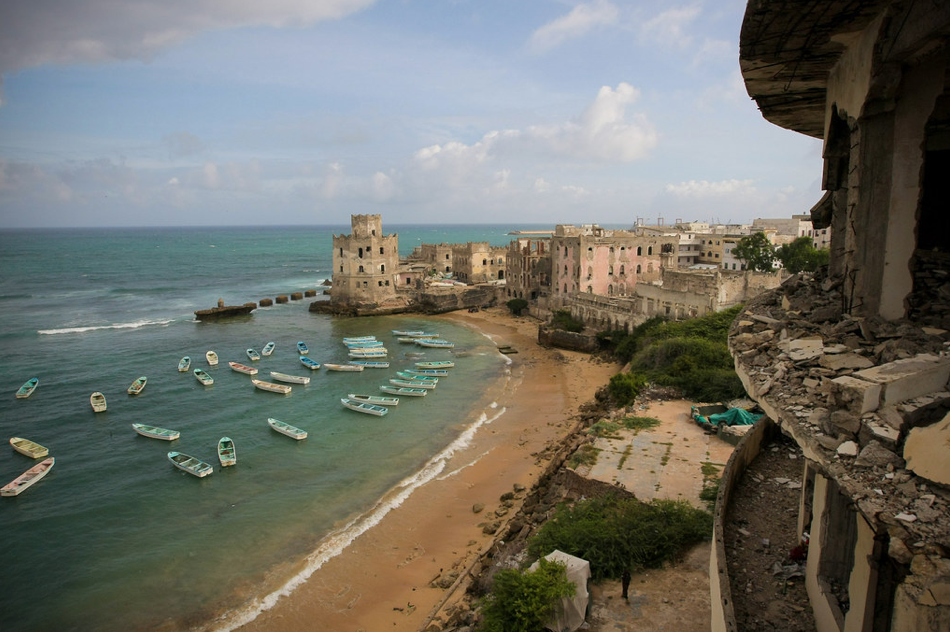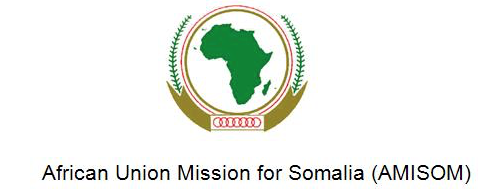Somalia Country Profile – Government/Politics

AU-UN IST PHOTO / STUART PRICE
from the CIA Factbook (Page last updated on October 09, 2020)
Government type: federal parliamentary republic
Capital: Mogadishu
Administrative divisions: 18 regions: Awdal, Bakool, Banaadir, Bari, Bay, Galguduud, Gedo, Hiiraan, Jubbada Dhexe (Middle Jubba), Jubbada Hoose (Lower Jubba), Mudug, Nugaal, Sanaag, Shabeellaha Dhexe (Middle Shabeelle), Shabeellaha Hoose (Lower Shabeelle), Sool, Togdheer, Woqooyi Galbeed.
Independence: 1 July 1960 (from a merger of British Somaliland, which became independent from the UK on 26 June 1960, and Italian Somaliland, which became independent from the Italian-administered UN trusteeship on 1 July 1960 to form the Somali Republic).
Constitution:
- history: previous 1961, 1979; latest drafted 12 June 2012, approved 1 August 2012 (provisional).
- amendments: proposed by the federal government, by members of the state governments, the Federal Parliament, or by public petition; proposals require review by a joint committee of Parliament with the inclusion of public comments and state legislatures’ comments; passage requires at least two-thirds majority vote in both houses of Parliament and approval by a majority of votes cast in a referendum; constitutional clauses on Islamic principles, the federal system, human rights and freedoms, powers and authorities of the government branches, and inclusion of women in national institutions cannot be amended.
Legal system: mixed legal system of civil law, Islamic (sharia) law, and customary law (referred to as Xeer).
Executive branch:
- chief of state: President Mohamed ABDULLAHI Mohamed “Farmaajo” (since 8 February 2017).
- head of government: Prime Minister Mohamed Hussein ROBLE (since 27 September 2020).
- cabinet: Cabinet appointed by the prime minister, approved by the House of the People.
- elections/appointments: president indirectly elected by the Federal Parliament by two-thirds majority vote in 2 rounds if needed for a single 4-year term; election last held on 8 February 2017 (previously scheduled for 30 September 2016 but postponed repeatedly); prime minister appointed by the president, approved by the House of the People.
- election results: Mohamed ABDULLAHI Mohamed “Farmaajo” elected president in second round; Federal Parliament second round vote – Mohamed ABDULLAHI Mohamed “Farmaajo” (TPP) 184, HASSAN SHEIKH Mohamud (PDP) 97, Sheikh SHARIF Sheikh Ahmed (ARS) 46.
Legislative branch:
description: bicameral Federal Parliament to consist of:
- Upper House (54 seats; senators indirectly elected by state assemblies to serve 4-year terms)
- House of the People (275 seats; members indirectly elected by electoral colleges, each consisting of 51 delegates selected by the 136 Traditional Elders in consultation with sub-clan elders; members serve 4-year terms)
elections:
- Upper House – first held 10 October 2016 (next NA).
- House of the People – first held 23 October – 10 November 2016 (next NA).
election results:
- Upper House – percent of vote by party – NA; seats by party – NA; composition – men 41, women 13, percent of women 24.1%.
- House of the People – percent of vote by party – NA; seats by party – NA; composition – men 208, women 67, percent of women 24.4%; note – total Parliament percent of women 24.3%.
- note: the inaugural House of the People was appointed in September 2012 by clan elders; in 2016 and 2017, the Federal Parliament became bicameral with elections scheduled for 10 October 2016 for the Upper House and 23 October to 10 November 2016 for the House of the People; while the elections were delayed, they were eventually held in most regions despite voting irregularities; on 27 December 2016, 41 Upper House senators and 242 House of the People members were sworn in
Judicial branch:
- highest courts: the provisional constitution stipulates the establishment of the Constitutional Court (consists of 5 judges, including the chief judge and deputy chief judge); note – under the terms of the 2004 Transitional National Charter, a Supreme Court based in Mogadishu and the Appeal Court were established; yet most regions have reverted to local forms of conflict resolution, either secular, traditional Somali customary law, or Islamic law.
- the judge selection and term of office: judges appointed by the President upon the proposal of the Judicial Service Commission, a 9-member judicial and administrative body; judge tenure NA.
- subordinate courts: federal courts; federal member state-level courts; military courts; sharia courts.
Government – note: regional and local governing bodies continue to exist and control various areas of the country, including the self-declared Republic of Somaliland in northwestern Somalia.
These products are the results of academic research and intended for general information and awareness only. They include the best information publicly available at the time of publication. Routine efforts are made to update the materials; however, readers are encouraged to check the specific mission site at https://amisom-au.org.
Index
Executive Summary / Current Political and Security Dynamics / Recent Situation Updates
Central African Republic Country Profile
Government/Politics / Geography / Military&Security / Economy / Social / Information / Infrastructure
African Union Mission in Somalia (AMISOM)
Senior Leaders of the Mission / Mandate / Strength / Deployment of Forces / Casualties / Mission’s Political Activities / Background / Timeline
